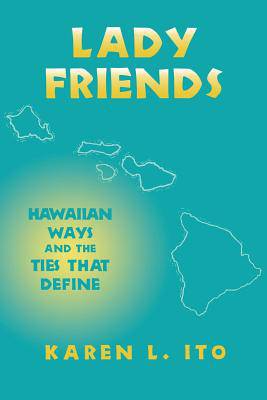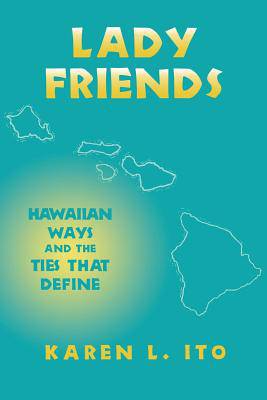
- Retrait gratuit dans votre magasin Club
- 7.000.000 titres dans notre catalogue
- Payer en toute sécurité
- Toujours un magasin près de chez vous
- Retrait gratuit dans votre magasin Club
- 7.000.0000 titres dans notre catalogue
- Payer en toute sécurité
- Toujours un magasin près de chez vous
Description
Many indigenous Hawaiians who have moved to the islands' cities languish at the bottom of the socioeconomic scale and are thought to have lost their cultural roots. Initially apolitical urban Hawaiians were often skeptical of activists who sought to revitalize traditional ways; yet, as Karen L. Ito shows, Hawaiian women in particular continue to maintain and express crucial aspects of their cultural heritage in their lifestyle and interactions with others. Ito conducted intensive fieldwork with six Honolulu families, all of which shared the distinguishing characteristics of Hawaii's matrifocal society. In her close examination of the friendships and family relations among the women in these households, she focuses on the significance of a traditional manner of speech known as "talk story" which they use when conversing together. She describes how her subjects employ metaphoric language to address issues concerning responsibility, retribution, understandings of self and personhood, and methods for conflict resolution. For these "lady friends," Ito finds, the emotional quality and quantity of their social relationships help define personal identity while their common concepts of morality bind them together. By applying ethnopsychological strategies to the exploration of culture, Ito demonstrates cultural continuity at a level where most observers would not expect to find it. Lady Friends brings a new dimension to Hawaiian research.
Spécifications
Parties prenantes
- Auteur(s) :
- Editeur:
Contenu
- Nombre de pages :
- 192
- Langue:
- Anglais
- Collection :
Caractéristiques
- EAN:
- 9780801499395
- Date de parution :
- 19-07-99
- Format:
- Livre broché
- Format numérique:
- Trade paperback (VS)
- Dimensions :
- 155 mm x 229 mm
- Poids :
- 263 g

Les avis
Nous publions uniquement les avis qui respectent les conditions requises. Consultez nos conditions pour les avis.






